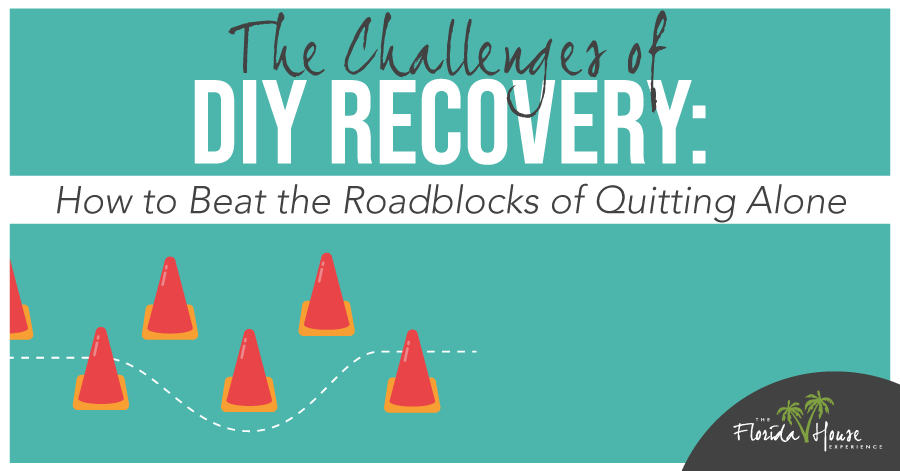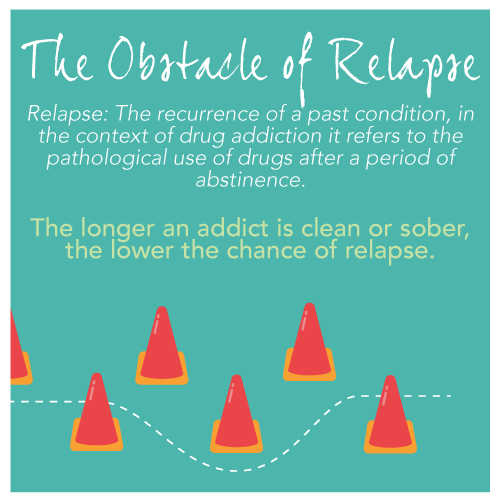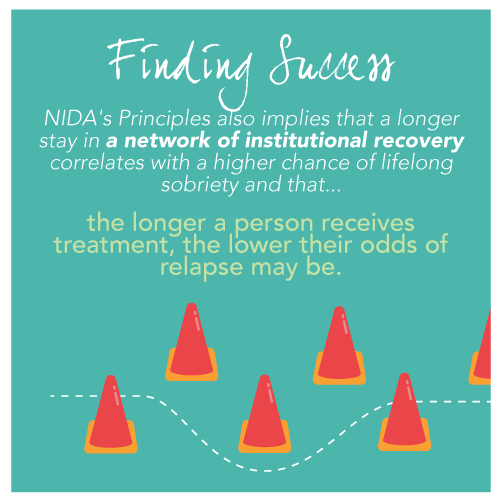
An important thing to realize about addiction is that it isn’t an acute condition. In other words, it’s not something that you’re diagnosed with and treat with a short run of medications before being fully recovered.
Addiction is a lifelong disease and has to be treated as such. This means that treatment and care and risk avoidance have to be sustained over an addict’s entire life, which can be daunting for some people. Being told you can never use drugs or alcohol, things that have likely become part of a daily routine can cause people to become emotionally and physically unstable.
One of the most complex aspects of addiction is that, unlike other chronic diseases like asthma or diabetes, there’s no standard roadmap for effective treatment. This is partly because addiction can manifest itself in different ways for different people, depending on the source of the condition and unique factors in a person’s life.
The fact is, establishing sobriety is extremely difficult, and if you’re like many addicts who keep stopping and starting, you may be wondering, “I keep relapsing. Will I ever be able to stay clean?”
You can, and if you take the right steps in your recovery, you will. Here’s why quitting is so difficult, especially if you lack consistent support.
What Is a Relapse?
 Whether you’re trying to quit “cold turkey” or you’ve gone through some level of treatment and are trying to maintain your sobriety, the odds are good that you’ve had a relapse before.
Whether you’re trying to quit “cold turkey” or you’ve gone through some level of treatment and are trying to maintain your sobriety, the odds are good that you’ve had a relapse before.
Relapse is used in discussions of every chronic disease and describes a situation where the condition is being treated and “dormant,” so to speak, then recurs to a serious level once again.
Unfortunately, although relapse exists in many diseases, it has a negative connotation due to the association with addiction. Despite more and more people beginning to see addiction as a disease, there are still many who consider it a moral failing.
In simple terms, when an addict relapses, they start using again, and addiction is such that a relapse may require you to start back at square one. This can be very frustrating, but changing the way we think about relapse may be key to developing the persistence needed for lasting change.
The Right and Wrong Ways to View Relapse
The wrong way to think about relapse, and addiction in general, is to think there’s an end to it. People who view addiction as something that can be treated and moved on from are the most likely candidates to relapse because they aren’t serious about their sobriety.
Studies show that the longer an addict is sober during their recovery, the lower the chance of relapse, but that chance will never be zero. Psychology Today reports that there is still a 15 percent chance of relapse after five years of consistent sobriety.
There’s also evidence to suggest that many of us are thinking about relapse all wrong. According to the National Institute on Drug Abuse (NIDA), relapse rates for addiction are estimated to be around 40 to 60 percent after treatment. While that seems high, let’s put it in context. The relapse rates for similar chronic diseases, asthma, and hypertension have an average rate of 50 to 70 percent.
How to Avoid Triggers for Relapse
Whether you’ve undergone treatment or not, there are strategies to avoid relapse. Self-reflection and identifying the people, places, and experiences that may lead you to use are important in maintaining sobriety. Learning your triggers and developing avoidance strategies is crucial for recovery that has a chance to be permanent.
Rehab’s Role in Sustaining Sobriety
Before we get into what kind of care best provides the foundation for lifelong recovery, we should note: It is possible to recover on your own. It has happened before, and it will continue to happen.
With this in mind, the longer you try and fail to quit on your own, the more risk you’re putting yourself under. There are myriad risks of using drugs, especially today with the spread of dangerous opiates like fentanyl and its analogues. Overdose rates are rising, and there are serious health risks from long-term abuse of drugs and alcohol including organ failure and HIV from shared needles.
A rehab facility may not be the only effective option for you (although it is for many people) but it will likely be the one with the most effect in the shortest amount of time. According to NIDA’s Principles of Effective Treatment, the odds of successfully quitting are shown to be lower alone than in a community with constant medical oversight and community support.
The Continuum of Care
 NIDA’s Principles also implies that a longer stay in a network of institutional recovery correlates with a higher chance of lifelong sobriety and that the longer a person receives treatment, the lower their odds of relapse may be.
NIDA’s Principles also implies that a longer stay in a network of institutional recovery correlates with a higher chance of lifelong sobriety and that the longer a person receives treatment, the lower their odds of relapse may be.
This is where the idea of the continuum of care comes into play. Through each stage of facilitated recovery (detox, residential treatment, partial hospitalization, intensive outpatient and aftercare) addicts learn coping methods and skills to help them avoid negative influences and triggers once their back “on their own.”
We use quotes because the rehab space emphasizes the importance of a community from start to finish. The most effective treatment centers utilize a continued support model, and even long-term recovered addicts still meet with 12-step groups on a regular basis.
The Importance of Commitment
Addiction is extremely complex, but if recovery boiled down to one “secret,” it would be this: Lifelong recovery is impossible without a full commitment. It’s usually not enough to try to get sober before work or after school. This is one of the reasons residential care has been proven to provide the best outcomes: It forces addicts to make a 100 percent commitment to their recovery in a comfortable environment, free of distractions and temptation.
If you or a loved one feel discouraged that you can’t get clean alone, maybe it’s time to try another option. Contact FHE Health and learn more about making a commitment to recovery.






